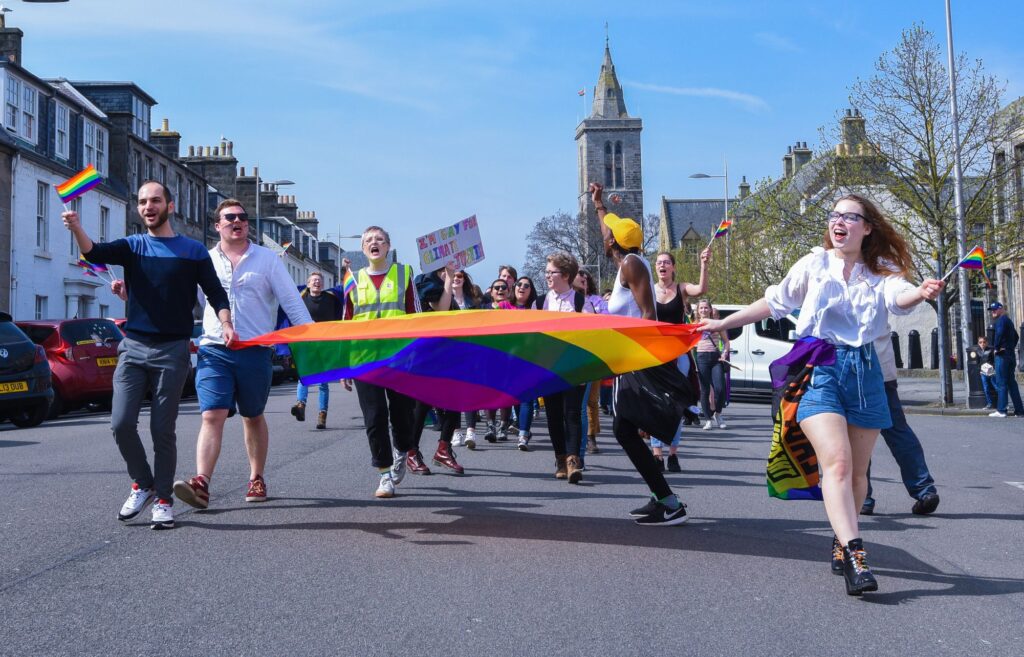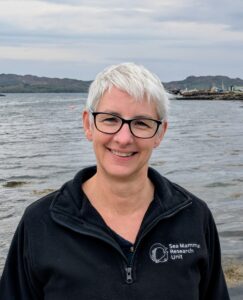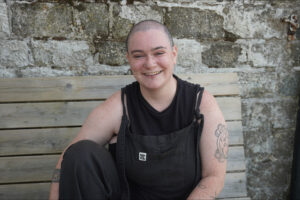April / May – LGBTQI+ Equality

What do we mean by LGBTQI+ Equality?
LGBTQI+ equality means ensuring that lesbian, gay, bisexual, transgender, queer and intersex (LGBTQI+) people have the same rights and opportunities as everyone else, regardless of their sexual orientation or gender identity.
Within the University, work to ensure LGBTQI+ equality includes committing to strategic actions through institutional and School-level action plans, providing a safe space through our LGBTQI+ Employee Network and Saints LGBT (for students), hosting an annual round table with trans and non-binary students, and providing guidance to the community on pronouns and gender-inclusive language.
Learn
- Read about the history of LGBT life at St Andrews in this post from 2018. Although now slightly dated, it delves into the history of Saints LGBT and LGBT spaces in St Andrews. The SaintLGBT+ webpages provide information on current events and activities.
- Read biographies and about the experiences of LGBT staff and students, for example; Kiki’s experience of Recolouring the Queer, Audrey’s post on the Importance of Queer Representation in Media, School of Biology LGBT+ role models, or Sofia Johnson’s experiences as a trans student in this SuperSaints profile.
- Staff can learn more about gender inclusive language through participating in relevant training, such as Embedding gender-inclusive language principles in pedagogical practice (in-person), Gender-inclusive language principles for customer-facing services (in-person), or Pronouns and Gender-inclusive Language – Training Video (for staff and students). Also read the University’s Pronoun Guidance.
- Explore Perverse Collections which maps the growth of Europe’s queer and trans archives, from the 1970s to the present; comparatively explores the workings of these collections, the understandings of LGBTQ+ history they promote locally, nationally, and internationally, and the alternative models of archiving some embody.
- Browse resources created by the Human Rights Campaign (HRC) on different topics including; Allies, Coming Out, LGBTQ+ Youth and Parenting.
Do
- If you are a student who is looking at internship or job opportunities, check out the Careers Centre webpages which lists LGBTQ+-friendly employers, workplace information, and networking opportunities.
- If you are LGBTQ+ staff member, consider joining the LGBTQI+ Employee Network, or if you are an LGBTQI+ student, consider getting involved with SaintsLGBT, and their Facebook groups for Asexual & Aromantic, Trans and Non-binary, LGBT+ People of Colour (BAME/POC), LGBT+ Disabilities, LGBT+ Freshers and LGBT+ Postgraduate communities.
- Engage with materials and resources gathered by the School of Psychology and Neuroscience as part of Culture Club, and consider holding your own.
- Join in Pride celebrations! St Andrews Pride will run on Sunday 27 April 2025, however, Pride events are scheduled around the country, with most occurring between June and August in the UK.
Community Reflections
We must all strive to create a welcoming and inclusive community
Given the distance we have come in matters of EDI since I was an undergraduate (a long time ago!) it is extremely saddening to see the recent backwards steps being taken across the globe. Anti LGBTQ+ and anti-trans rhetoric is on the rise, and it is not hard to see why. Given recent rollbacks of DEI initiatives and policy in the US, and Hungary passing laws banning LGBTQ+ gatherings, there seem to be more examples of retrograde steps than of progress. And sadly, these are not steps that we can reassure ourselves wouldn’t have support in the UK, as reading comment sections about the recent UK Supreme Court decision on the definition of a woman will tell you. This decision, according to the UK Equality Network “reverses twenty years of understanding on how the law recognises trans men and women”. It’s hard to see how this is a decision that is compatible with a society that is fair and equal for everyone, and it is equally not hard to understand why homophobic and transphobic attacks are on the rise here in the UK.
Visibility is more important than ever. However, it is not just about showing up as your authentic self in a way that is visible to those who share elements of your identity, but about having the bravery to face the potential of attack from those who would believe your existence somehow threatens their world. Here in St Andrews, I have always been proud to work for an organisation that has a genuine commitment to the principles of EDI. Committees and activities won’t provide the changes we seek in wider society; resistance is coming from those who are fundamentally opposed to the vision of the future that these initiatives have. I don’t have the answers to how we counter these divisive, destructive narratives but I know that as long as St Andrews continues to strive to be a welcoming and safe place for all members of the community, I’ll continue to do what I can to support that goal.
Research is not inherently unbiased- we must work to recognise and remove bias
As people involved in academia, we are all familiar with the concept of the detached, unbiased researcher who discovers the truth through rigorous testing and investigation. Here’s the thing- that researcher doesn’t exist. Nobody can be truly unbiased and neglecting to recognise bias is possibly the greatest danger to the integrity of research and knowledge. Homosexual behaviour in animals was called a “Darwinian paradox” and an “evolutionary dead end”, eventually leading to the use of conversion therapy techniques on animals like cats, dogs, ponies, and penguins. It never worked. Scientists assumed that their cultural biases towards queerness was truth rather than bigotry and never second guessed themselves.
As academics, it is necessary that we work to unpack the impact of society on our area of research. We must question assumptions and critically assess the impact that our research has on society. One key method of doing this is considering the ways in which marginalised groups talk about and research themselves. This will prevent research questions like “do bisexual men exist” or “do women have a sexual orientation”. Instead, we can focus on more relevant questions like “how does society hide the existence of bisexual men” or “what biology underlies the diversity of queerness”. Doing the work of removing societal sway on research is freeing and can open entirely new fields. I am speaking from my experience as a biologist, but this is a job for any researcher or student, no matter the field. I invite you to do this work and make academia reflect the world we live in by questioning the ways in which structural bias influences our thinking.
Relevant university resources and policies
There are a number of policies, guidance and resources which help us to support an inclusive environment.
SaintsLGBT+ Resource hub – a collection of information and tools created by SaintsLGBT+ to support those exploring their identity, navigating a transition, or just seeking support..
Resources for LGBT+ Students – a guide document linking to internal and external resources.
Pronoun guidance and pronoun and gender-inclusive language training video – to support staff and students to understand the use of pronouns.
Support for transgender and gender-nonconforming students – learn about gender identity and the support available to transgender and gender-nonconforming students.
School of History Reading List – this reading list was pulled together by staff and students in the School for LGBT Month in 2019, and brings together reading on LGBT history and the history of sexuality.
Events
Project Highlights
In this section, we primarily focus on projects which are funded through the EDI Project Fund.
Have your say
Please contact edicomms@st-andrews.ac.uk if you would you like to share your own reflections on the theme of LGBTQI+ Equality or have any feedback on the Diversity Calendar webpages.
The theme for June/July is Accessibility and Disability. If you would like to tell us about any helpful resources, materials or activities related to this theme, or would like to write a reflection piece, please also contact edicomms@st-andrews.ac.uk.


